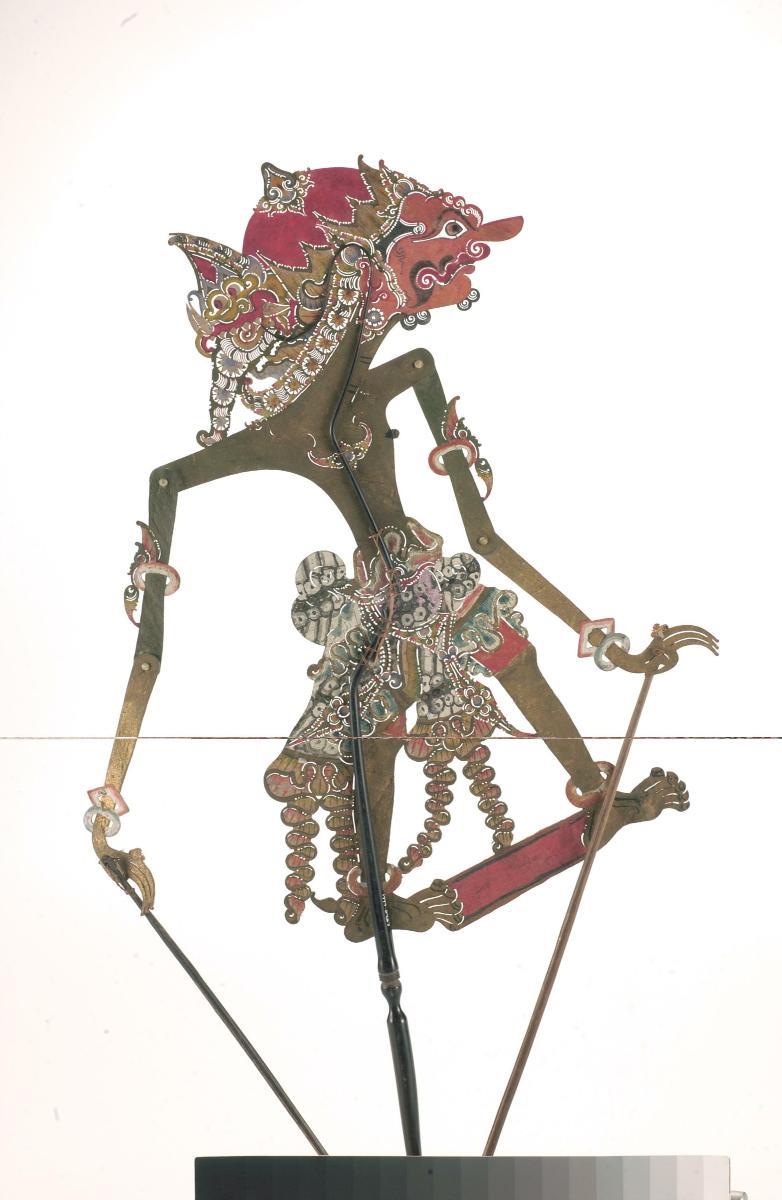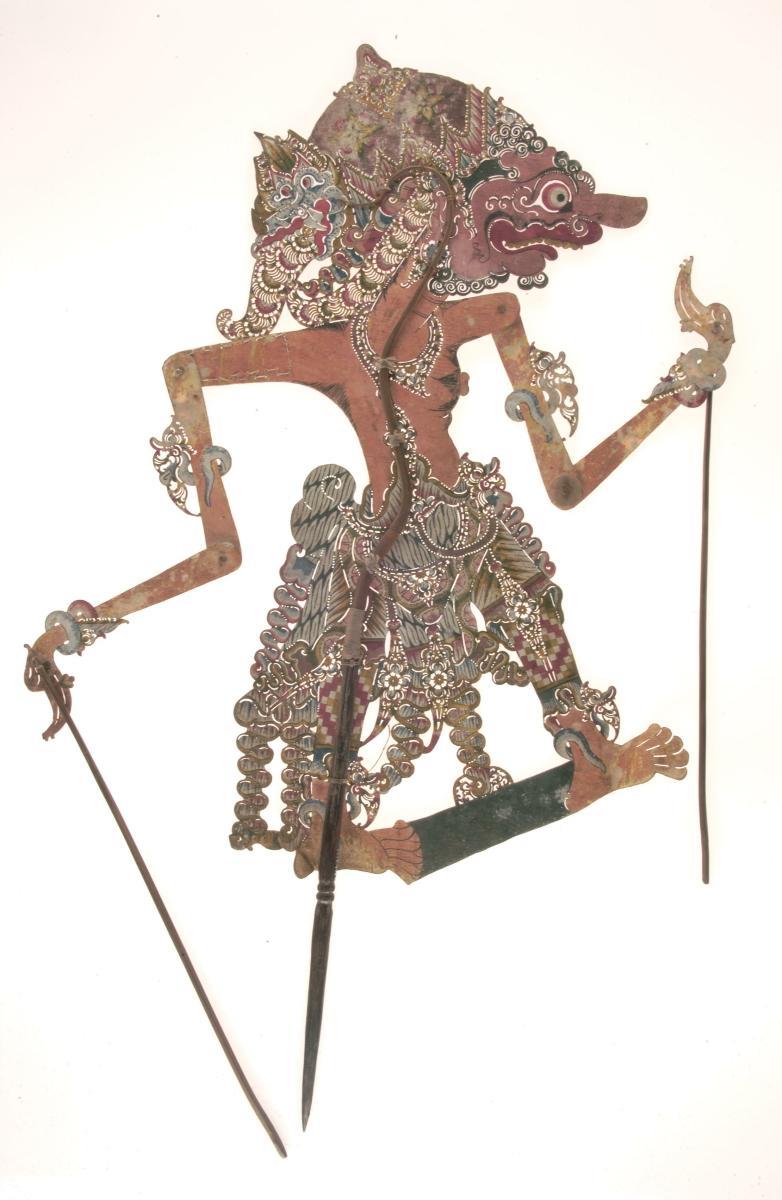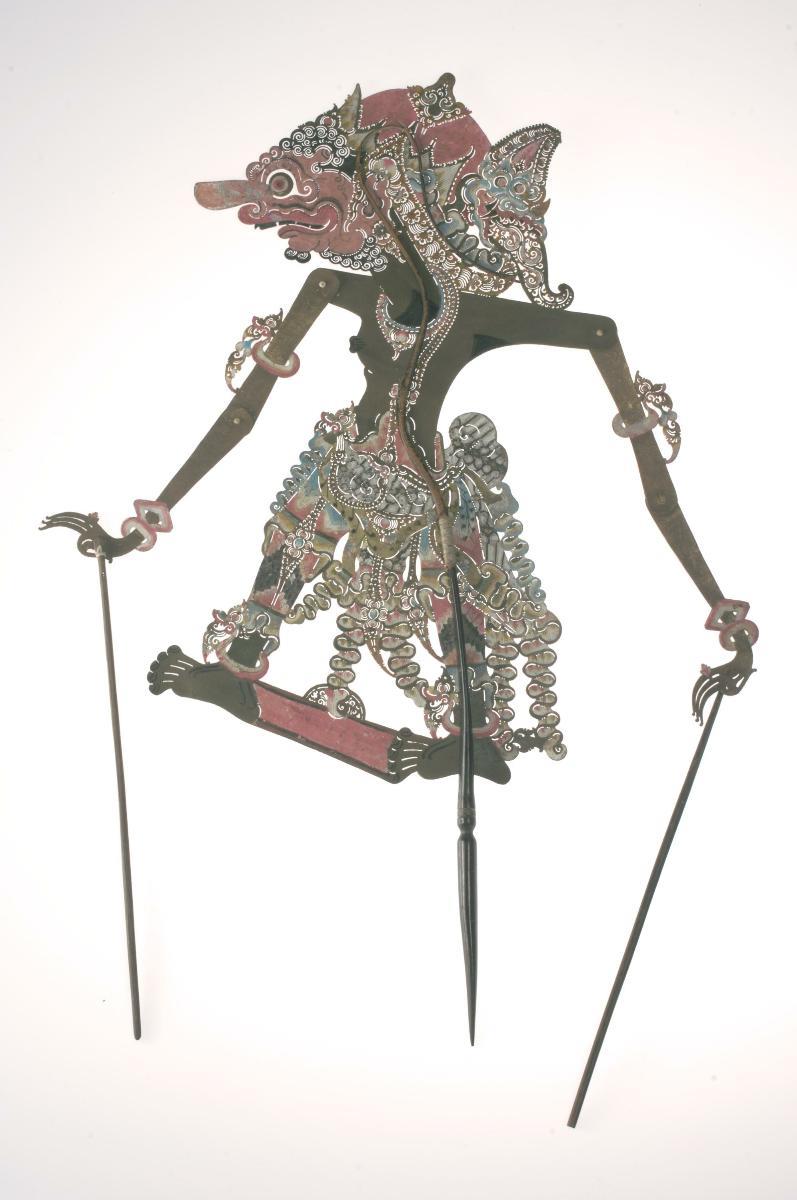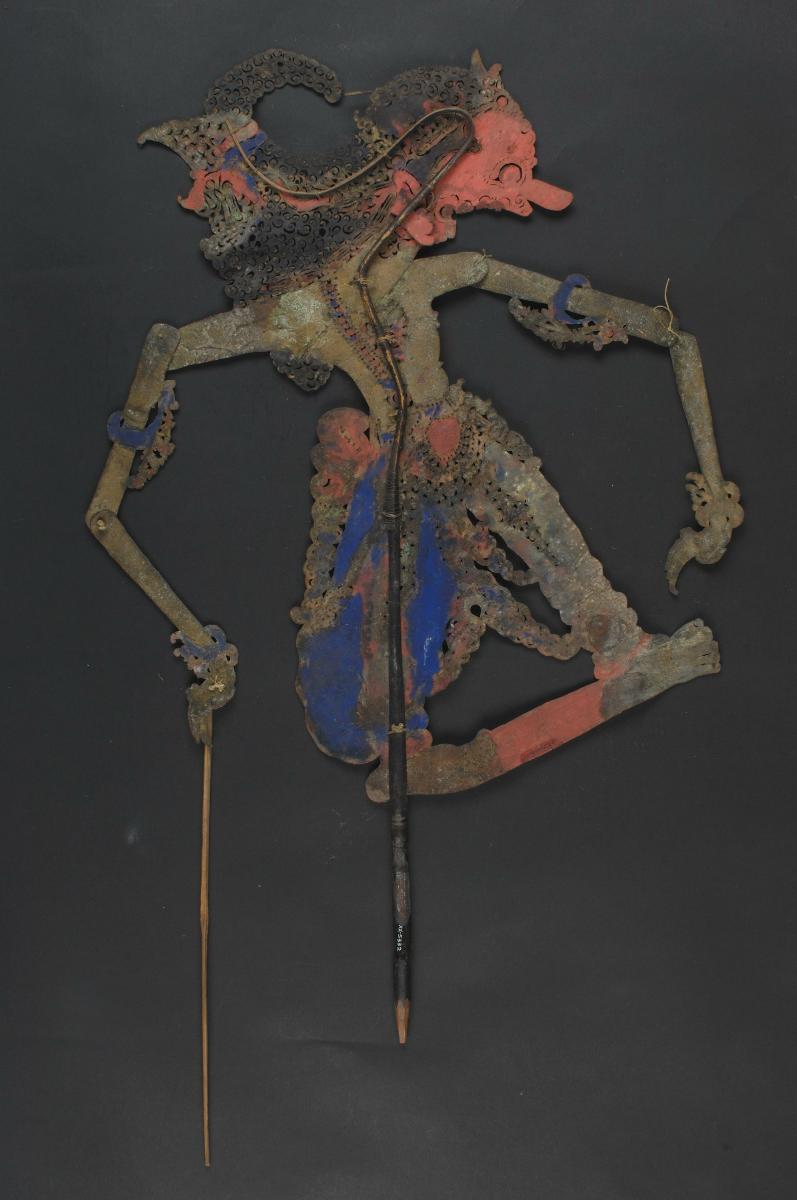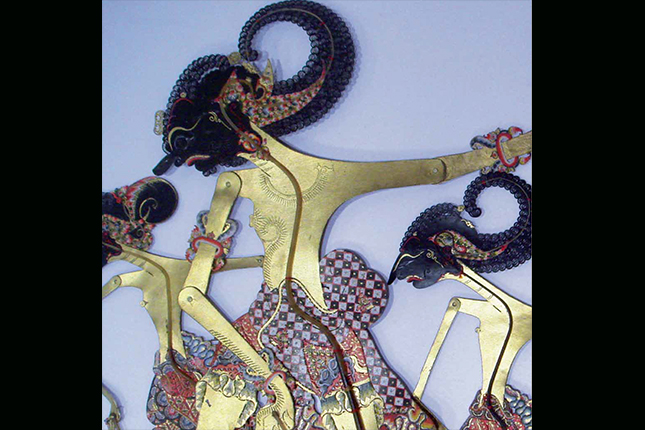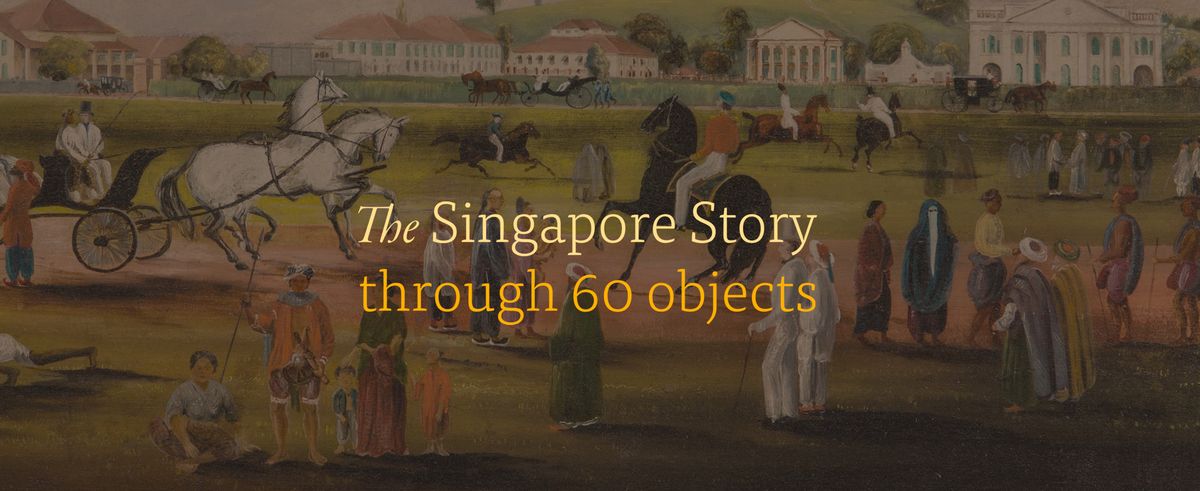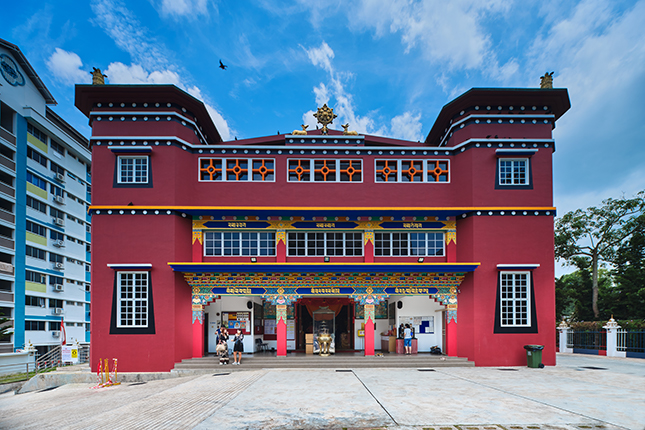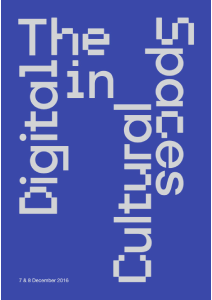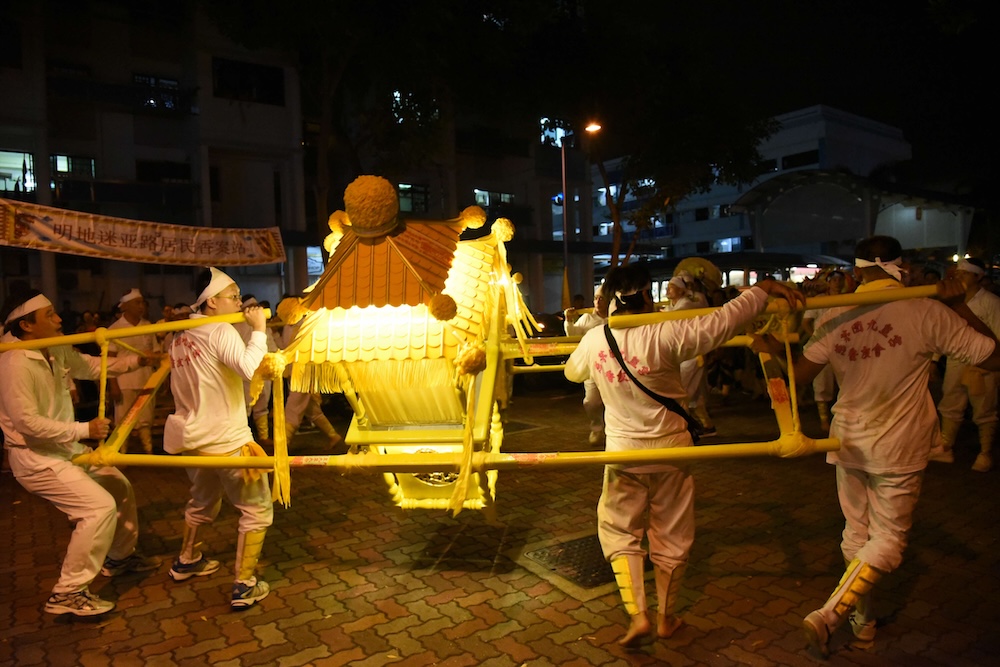This puppet represents the character Dursasana (Dussasana) from the Hindu epic, the Mahabharata performed in the Javanese 'wayang kulit' or leather shadow puppet theatre tradition. He is the second eldest of the Korawa (Kaurava) family and is regarded as the most unpleasant and unsavoury of them all. He is a bold and haughty character as indicated by his red face, rounded eyes, forward-looking gaze and wide stance.The Mahabharata relates the conflict and struggle between two sets of cousins, Pandawa (Pandava) and Korawa over the rule of the kingdom of Astina (Hastinapura). The Pandawa (Pandava) brothers eventually overcome the Korawa (Kaurava) in the Great War, the Bharatayuda. The vast majority of the ‘wayang’ plays performed are drawn from the two great Hindu epics, the Ramayana and the Mahabharata with as well as stories of Javanese origin.'Wayang kulit' is considered as the highest of the Javanese performing arts. Performed in the royal courts of Java as early as the ninth century, this tradition continues to be treasured as one of the pusaka or sacred heirlooms of the court. 'Wayang kulit' is traditionally performed on ritual days and religious ceremonies. It has also been adapted more recently for television and public education campaigns.




